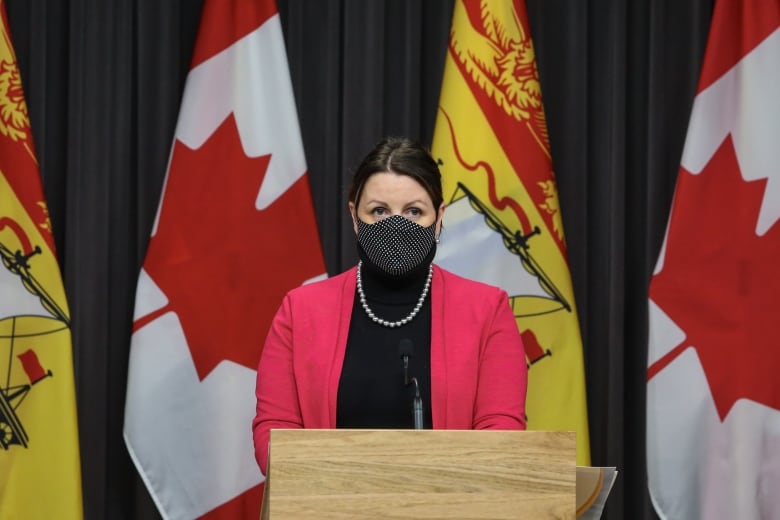On guard against variants: N.B. bracing for battle with a mutating menace
It’s been three days since the coronavirus variant’s arrival in New Brunswick was confirmed, and Public Health is watching for more cases every day.
Every week, as many as 40 samples are sent to Canada’s National Microbiology Laboratory (NML) in Winnipeg.
About seven to 10 days later, the results are returned. In New Brunswick’s case, those results detected three cases of the variant – two in the Saint John region and one in the Miramichi region.
Here’s how the detection process works.
First, all COVID-19 swabs are sent to the lab at Moncton’s Dr. Georges-L.-Dumont University Hospital Centre for a first round of analysis.
If a test comes back positive and the patient’s travel history indicates possible exposure to the variant, the sample is then sent to Winnipeg.
There, the National Microbiology Laboratory is tasked with helping the federal government monitor for genetic variants that have been identified in the U.K., South Africa and elsewhere.

The Dumont lab also sends positive samples selected at random, from every health zone, to Winnipeg.
That’s how the variant case in the Miramichi region “popped up,” Dr. Jennifer Russell, the chief medical officer of health, explained to CBC’s Information Morning in Saint John.
“It was a positive case that was sent randomly for sentinel testing for the variant.”
As of last Saturday, 147 specimens had been sent to the Winnipeg lab.
In addition to the three that came back positive for the variant, about 100 came back negative and the rest are pending.

Vaccines vs. a changing virus
Microbiologist Dr. Samira Mubareka said the virus seems to be “two steps ahead” of vaccine development and distribution.
Nearly a year ago, Mubareka was part of the first Canadian research team to successfully isolate SARS-CoV-2 and then reproduce it in a lab to study its genetic code.
She said the data is still coming in on the variant that originated in the U.K., but the evidence does suggest it spreads more easily.
“People are now saying it’s around 50 per cent more transmissible,” Mubareka said from her office at Sunnybrook Health Sciences Centre in Toronto.
Existing vaccines do provide protection against the variant so far, Mubareka said.
She also said it hasn’t finished mutating.
Just this week it has been described as having acquired “yet another mutation that was not there before,” Mubareka told CBC New Brunswick News at 6.
She said COVID-19 vaccine booster shots may be required in the same way vaccines against the seasonal flu are updated every year to respond to the most common strains.
“I would not be shocked if it ultimately looks like what we do with the flu.”

Variant could force changes to Public Health measures
Dr. Russell acknowledged that some people are already exhausted from having their lifestyles turned upside-down, but said the arrival of the variant may trigger additional Public Health responses.
One idea being considered is whether to require variant-positive patients to self-isolate for as long as 21 days. There’s also some discussion about asking not just the close contacts of cases to isolate, but also “the contacts of a contact.”
In the meantime, while scientists study how to provide better protection against a changing virus, all the existing measures are worth sticking with, Mubareka said.
The variant underscores the need for ongoing surveillance, excellent contact tracing, isolation and followup, in addition to other precautions such as wearing masks.
The variant does appear to respond to these measures.
What’s more, Mubareka noted, “there’s also a warning in that message in that once you start pulling back,” the variant will rebound.
“So reinforcing all of [the existing measures] is key.”



